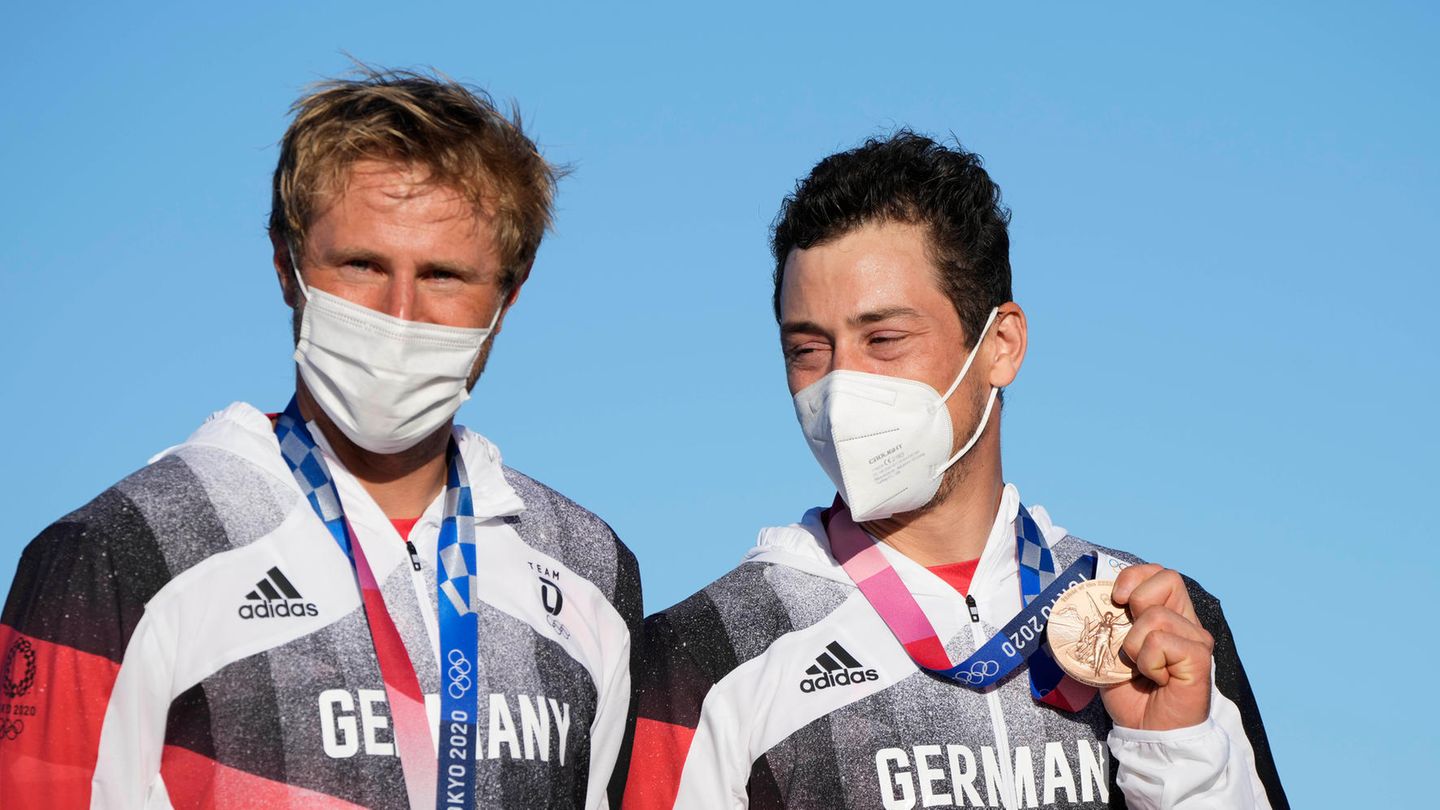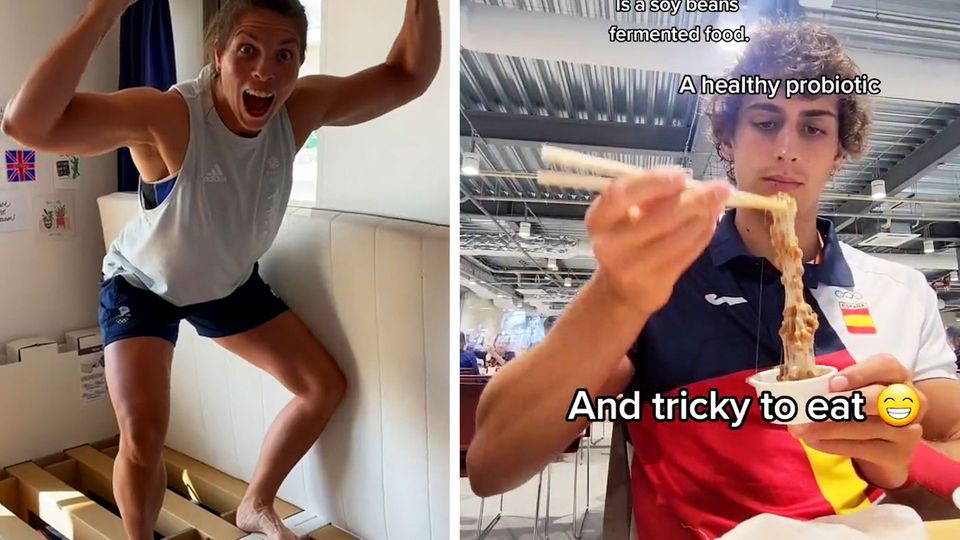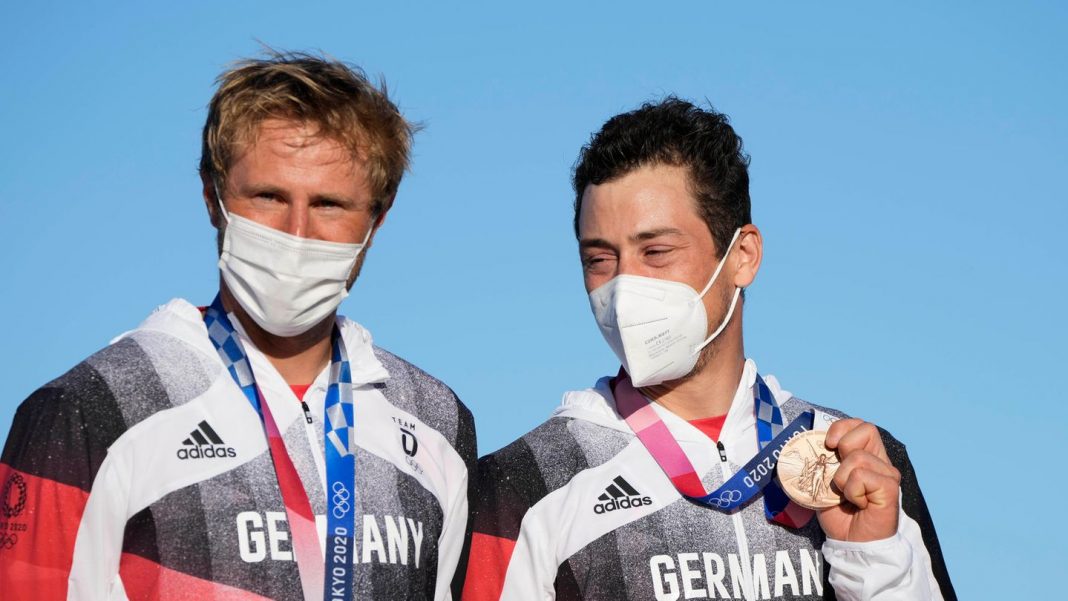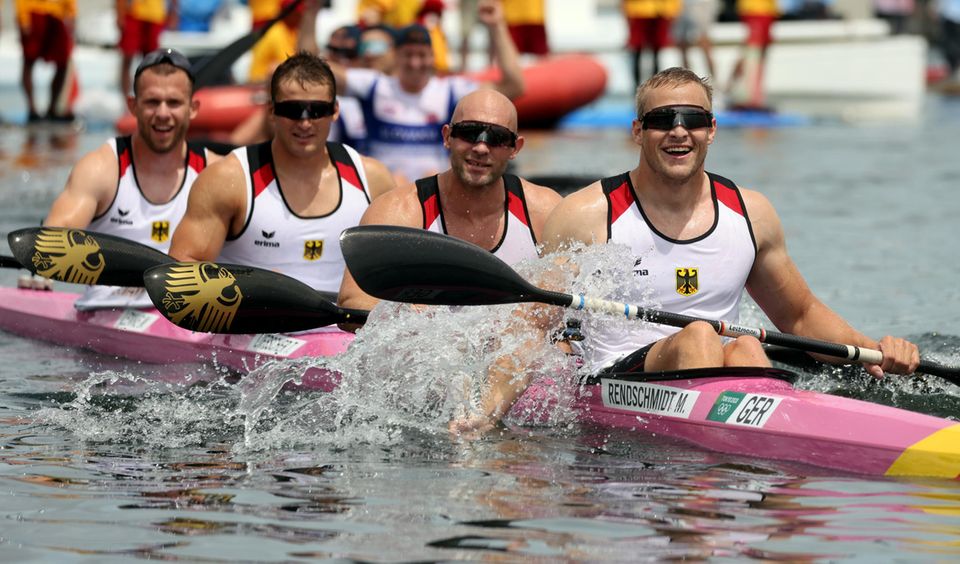Interview
Tokyo 2021
“I also have a crying eye”: how sailor Thomas Plößel experienced his second bronze medal

Helmsman Erik Heil (l.) and forecaster Thomas Plößel (r.) have secured their second Olympic bronze medal in the 49er in the last sailing regatta
© Bernat Armangue / AP / DPA
Together with Erik Heil, 49er sailor Thomas Plößel won his second bronze medal at the Olympics in Tokyo. In the interview, he explains why the second is better than the first and what was the difference between the sailing areas of the Games.
First of all: congratulations on bronze! Does the second bronze medal at the Olympics feel different than the first?
Yeah, definitely. This has a very simple reason: In Rio we had set ourselves silver as our goal and finally slipped to bronze. It felt like we lost. In Tokyo, we could have done everything between 1st and 7th on the last day and advanced from 4th to 3rd in the last race. Emotionally, this is something completely different. It’s amazing what this change of perspective is all about. Emotionally, this bronze medal is the more beautiful.
Their rankings in the individual races have fluctuated between 1st and 14th place-although they were already mostly in the front third. How much does the mood fluctuate in the course of the races?
I’m not looking at the list with the overall status. So much is happening and all the teams are so close together. Because emotions to invest is not worth it. We have a lot of experience and knew that we were doing well. After day 2 with a 5th, a 13th and a 14th place (of 19 teams, Red.), we knew we had to step on the gas. On the 3rd regatta day we took the places 2 and 3.
Do you set a tactic for the race before the start and pull it through or do you constantly react to wind and how the competition sails?
We try every time to deliver our perfect race. But we also know the competition and know that the Australians are good in strong winds, the Austrians in weak winds and that the Portuguese drive higher on the wind than we do. In this respect, we are already oriented towards the competition. But we have our own routine on every regatta day. We usually go out together with the Spaniards and look at the course, point with the compass, where the wind comes exactly and discuss. This takes about half an hour and is a very complex process. Basically, we consider a similar number of parameters as pilots before an aircraft take-off.
When did you know it was enough for bronze?
I had miscalculated and thought at the finish that the Spaniards are in 3rd place and we are in 4th place. Then a photographer came and said that we were on the bronze rank. But I did not want to rejoice too early, so as not to appear in such a”Too early rejoiced” video, of which there are already so many. I was really happy only on land. And it wasn’t until I had the medal hanging around my neck that it really became a reality. But because we form a training group with the Spaniards, I also have a crying eye with this medal. We didn’t want to take them away from the Spaniards.
What were the conditions in Japan in terms of water quality and environmental protection?
In Tokyo, the water was different, but also not much better than in Rio in 2016. Before Tokyo, a frightening amount of plastic also swam in the sea. We also collected old bottles and such a shut-off cap. But the water quality was better than in Rio, where sewage was discharged into the sea.
Have you looked at other competitions or did you want to go home as soon as possible?
We had to leave Japan within 48 hours. After the award ceremony and press events, we were only in the evening in the hotel. The next day mainly our trainer packed all our material into the container, we only helped. We had a lot with us with our training boat and all the equipment. But we were able to watch all the competitions live on TV in the Olympic village and so we got a little bit of the mood in our accommodation.

Have you already set yourself new sporting goals or are you just enjoying the bronze medal?
I don’t think we’ll be sailing this year. We have both built up a private life in the meantime, which we now want to take care of intensively. We’ll see next year.




